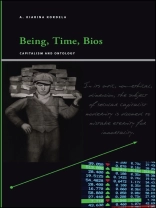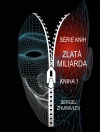A psychoanalytic theory of biopolitics.
Although both share a focus on human life as it is inscribed by power, Foucauldian biopolitics and Lacanian psychoanalysis have remained isolated from and even opposed to one another. In Being, Time, Bios, A. Kiarina Kordela aims to overcome this divide, formulating a historical ontology that draws from Spinoza, Marx, Heidegger, and Sartre to theorize the changed character of ‘being’ and ‘time’ under secular capitalism. With insights from film theory, postcolonial studies, and race theory, Kordela’s wide-ranging analysis suggests a radically new understanding of contemporary capitalism-one in which uncertainty, sacrifice, immortality, and the gaze are central.
Tabla de materias
Acknowledgments
Preface
I. Monist Meta-Phenomenological Ontology
Being and Time
Monist Being and Atheism
Value—Being—Surplus
Matter
Historical Time
Meta-Phenomenological Fact
Historiographical Project
Historical and Transhistorical Aspects of Being
Aristotle’s Discourses: Οικονοµια versus Χρηµατιστικη
Whence the Need for a Meta-Phenomenological Ontology?
Recapitulation in Other Words
II. Bios: Biopolitics and Ethics
Bios in Extant Biopolitical Theories
Bios: Surplus qua Labor-Power
Double Representation of Bios: Darstellung and Vertretung
Discourse, or the Symptom of the Repressed, and Language
Attributive Aspect of the Unconscious: the Temporality of Potentiality and Ethics
From Eternity (Attribute) to Immorality (Mode)
Battlefield of Biopolitics: Gazes of Immortality and Lethal Certainty
Enjoyment (Jouissance) and Utilitarianism
III. Biocinema and Bioracism
Biocinema: A Drop in Total Recall
Postmodern Bioracism: Exporting Mortality
Notes
Works Cited
Index
Sobre el autor
A. Kiarina Kordela is Professor of German and Director of the Critical Theory Program at Macalester College and currently holds an honorary position with the Writing and Society Research Group, University of Western Sydney, Australia. She is the author of Surplus: Spinoza, Lacan (also published by SUNY Press), and the coeditor (with Dimitris Vardoulakis) of Freedom and Confinement in Modernity: Kafka’s Cages.












